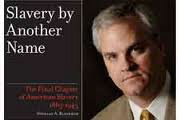Rockefeller Event to Focus on Race & Ethnicity
The experience of African Americans and Latina/os in Arkansas is the subject of a conference Friday and Saturday, May 11 and 12, sponsored by UALR’s Department of History and its Center for Arkansas History and Culture, the Central Arkansas Library System, and the Butler Center for Arkansas Studies.
 The conference, “Race and Ethnicity in Arkansas: Perspectives on the African American and Latina/o Experience,” is part of the Rockefeller Centennial Celebration marking the 100th anniversary of former governor Winthrop Rockefeller’s birth.
The conference, “Race and Ethnicity in Arkansas: Perspectives on the African American and Latina/o Experience,” is part of the Rockefeller Centennial Celebration marking the 100th anniversary of former governor Winthrop Rockefeller’s birth.
All events are free and open to the public and will be held at the Darragh Center, Main Public Library at 100 Rock St. in Little Rock.
Keynote Speaker – 6:30 p.m. Friday, May 11
Pulitzer Prize-winner Douglas Blackmon, author of “Slavery by Another Name,” will lead a plenary talk at 6:30 p.m. on Friday.
The book was recently featured as a documentary on PBS. The talk is a part of the Central Arkansas Library System J. N. Heiskell Distinguished Lecturer series.
Panel Discussions – 9:30 a.m. – 6 p.m. Saturday, May 12
From 9:30 a.m. to 6 p.m. Saturday, May 12, discussions by 14 fourteen local, state, and national experts will examine various aspects of race and ethnicity in Arkansas.
Participants include:
- Adjoa Aiyetoro, director of the UALR Institute on Race and Ethnicity and associate professor of law at the UALR William H. Bowen School of Law
- Jay Barth, the Ima Graves Peace Distinguished Professor of Politics at Hendrix College in Conway. He is the co-author – with the late Diane D. Blair – of the second edition of Arkansas Politics and Government: Do the People Rule?
- Melany Bowman of Arkansas State University, who spent the first 12 years of her life in Costa Rica, Chile, and Columbia learning English and Spanish.
- Jacqueline Froelich, senior news producer with KUAF National Public Radio in Fayetteville. Her two-hour public radio documentary “Arkansas Ozarks African Americans” was the first comprehensive black history of the Arkansas Ozarks.
- Perla Guerrero, assistant professor in the Department of American Studies and U.S. Latina/o Studies Program at the University of Maryland in College Park. She received her Ph.D. in American Studies and Ethnicity from the University of Southern California in 2010.
- Kelly Jones, a Ph.D. candidate at the University of Arkansas at Fayetteville working on her dissertation, a state study of slavery in Arkansas.
- Cherisse Jones-Branch, associate professor of history at Arkansas State University-Jonesboro where she teaches courses in U.S., Women’s, and African American History.
- John A. Kirk, George W. Donaghey Professor and Chair of the UALR Department of History, who has written, edited and co-edited six books on Arkansas and U.S. race relations.
- Guy Lancaster of the Arkansas Studies Institute, editor of the online Encyclopedia of Arkansas History and Culture.
- Story Matkin-Rawn, assistant professor of history at the University of Central Arkansas and coordinator of UCA’s Southern and Arkansas Studies program.
- Carl Moneyhon, professor in the UALR Department of History, who is a specialist in the history of the Civil War and Reconstruction eras.
- Grif Stockley, an independent scholar who has twice won the J. G. Ragsdale Award presented by the Arkansas Historical Association for the “best book length study in Arkansas History,” most recently in 2009 for his book Ruled by Race Black/White Relations in Arkansas from Slavery to the Present.
- David Stricklin, director of the Butler Center for Arkansas Studies and the Central Arkansas Library System (CALS) and associate director for Special Collections.
- Julie Weise, assistant professor of International Studies at California State University, Long Beach. Her current book project is “Corazon de Dixie: Migration and the Struggle for Rights in the U.S. South and Mexico, 1910-2010.”
- Calvin White of the University of Arkansas at Fayetteville whose research focuses on the extent to which class, respectability, and the efforts of racial uplift intersected in the development of African Americans‘ religious traditions and racial identity after emancipation in the Arkansas and Mississippi Delta.